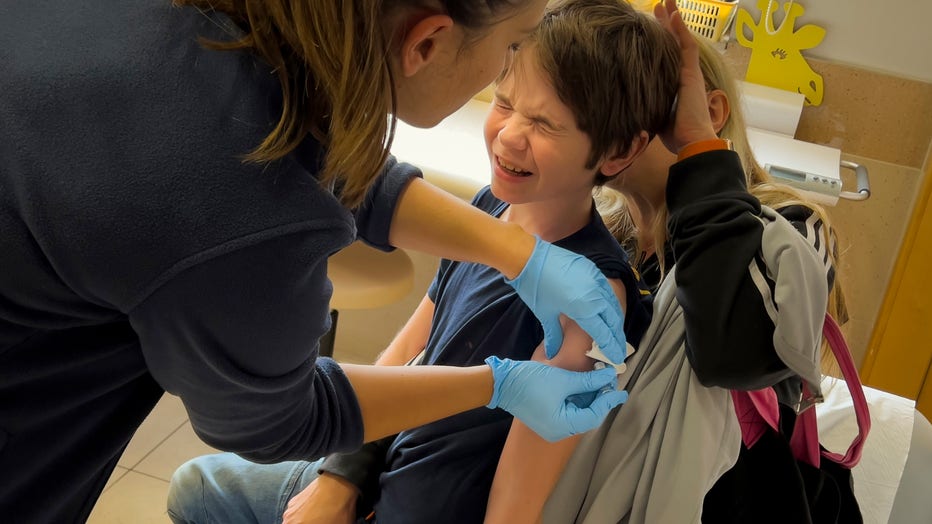Kindergarten vaccine exemptions reach all-time high
Polio outbreak in Gaza: new vaccination campaign
A polio case was reported in Gaza for the first time in 25 years. A 10-month-old boy contracted the disease, and is now paralyzed in the leg. The U.N. health agency is launching a vaccination campaign on Sunday. The goal is to vaccinate 640,000 Palestinian children against polio. Dr. Peter Chin-Hong, infectious disease expert, joins LiveNOW from FOX to explain the dangers of the disease, and the importance of the vaccinations.
The number of U.S. kindergartners whose parents claim exemptions from vaccine requirements has risen to an all-time high, according to new data from the U.S. Centers for Disease Control and Prevention.
The new figures show 92.7% of kindergartners got their required shots to start school, which is slightly lower than the previous two years. The percentage of kids exempted rose from 3% to 3.3%. That’s roughly 80,000 children who haven’t been vaccinated.
More than 30 states reported lower vaccination rates among kindergartners for the 2023-2024 school year, according to the CDC. Online misinformation and the political schism that emerged around COVID-19 vaccines have led more parents to question the routine childhood vaccinations that they used to automatically accept, experts say.

FILE - A child receives a flu vaccine. According to new CDC data, 200 flu-associated pediatric deaths were reported in the 2023-2024 season, the most since 2009. Health officials are pointing to lower vaccination rates. (Photo by Jaap Arriens/NurPhot
The decreased vaccination rates come amid a worrisome creep in cases of whooping cough, measles and other vaccine-preventable diseases, Dr. Raynard Washington, chair of the Big Cities Health Coalition, which represents 35 large metropolitan public health departments, told the Associated Press.
RELATED: Drug-resistant superbugs could kill more than 39 million by 2050, study suggests
Measles and whooping cough cases are at their highest levels since 2019, and there are still three months left in the year. And 200 flu-associated pediatric deaths were reported in the 2023-2024 season, the most since 2009.
Before the COVID-19 pandemic the kindergarten vaccination rate was 95%, the coverage level that makes it unlikely that a single infection will spark a disease cluster or outbreak. Public health officials focus on vaccination rates for kindergartners because schools are hotbeds for germs and launching pads for disease outbreaks.
"We all have been challenged with emerging outbreaks ... across the country," said Washington, the director of the health department serving Charlotte, North Carolina.
RELATED: Measles cases surge to triple last year's
All U.S. states and territories require that children attending child care centers and schools be vaccinated against a number of diseases, including, measles, mumps, polio, tetanus, whooping cough and chickenpox.
All states allow exemptions for children with medical conditions that prevent them from receiving certain vaccines. And most also allow exemptions for religious or other nonmedical reasons.
Kindergarten vaccination rates vary widely depending on which state you’re in: state laws and policies can make it harder or easier to receive exemptions. According to the CDC, 14.3% of kindergartners had an exemption to one or more vaccines in Idaho. But fewer than 1% did in Connecticut and Mississippi.
"People who are skeptical (about vaccinees) tend to live close to one another and create the conditions for a breakthrough of measles and other diseases," Noel Brewer, a University of North Carolina professor of health behavior, told the AP.

